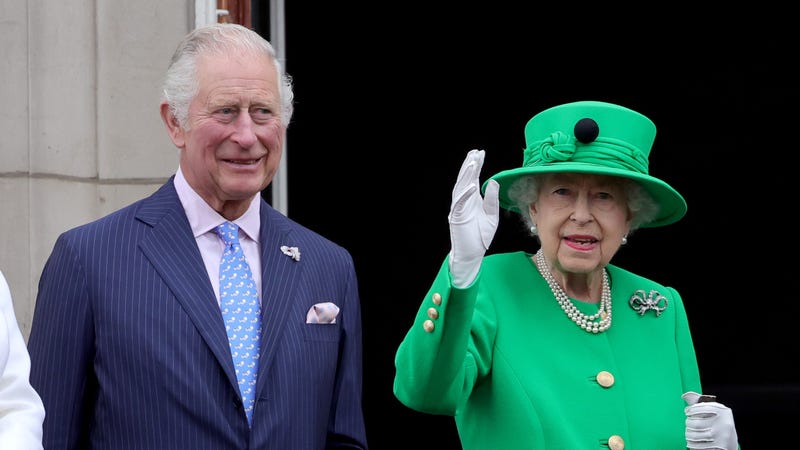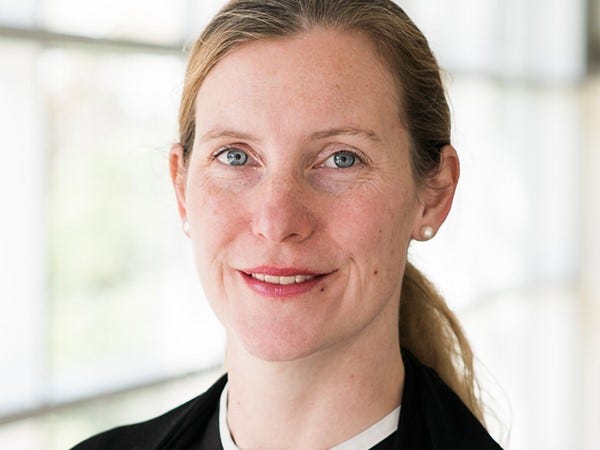
PHILADELPHIA (KYW Newsradio) — Queen Elizabeth’s role as the most powerful woman in the world had a great influence on global politics, sometimes in even the smallest ways. But it could be much different with the next monarchy.
Queen Elizabeth II, who died Thursday, was never meant to be queen. Her uncle, Edward VIII, was king for less than a year when he abdicated the throne and left it to Elizabeth’s father, George VI. When he died 16 years later, his eldest child, a young mother and the wife of a naval officer, began the longest reign in Britain’s history — becoming one of the most beloved monarchs of all time.
“Growing into that role and then tacitly acknowledging mistakes by making changes along the way, and dealing with the criticism, I think, is part of why now she’s the very much loved figure — both in the U.K. and around the world,” said Emma Leonard-Boyle, a political science professor at La Salle University.

“I think to be a successful queen, you have to be extraordinary in some ways, because it is a very unusual position to have. Most monarchs throughout history, even today, are kings and that’s kind of what we expect. So, to make a mark as a queen, you have to be doing something very different.”
Boyle was born in Great Britain. She also happens to have graduated from university with Prince William and his wife Kate Middleton, the Duke and Duchess of Cornwall and Cambridge.
“I think for a lot of people, the queen kind of took on this grandmotherly — almost great-grandmotherly — role for the younger generation. She was described as the ‘comforter-in-chief’ during the peak COVID lockdowns.
“She was just stability, really. She was a constant — regardless of whatever was happening in the country, regardless of politics, or in terms of COVID, or when it came to any kind of turmoil going on, she was the constant. And I think a lot of people can look to the royal family, and to the queen in particular, to provide that consistency and the comfort that consistency brings,” Boyle said.
The legacy of Elizabeth II stretches across the globe, through time and technological boom. She served her country in World War II. She ruled through more than a dozen British prime ministers, more than a dozen American presidents, five wars, the age of radio, TV and the internet.
“I think the queen has provided a sense of glamour that the U.K., and certainly British politics, would not have had in the American mindset had she not been there,” Boyle said. “I think the idea of presidents meeting the queen or hosting the queen is an exciting one, and the benefits to the reputation that that brings, and for ordinary Americans being able to visit Buckingham Palace, and being able to see members of the Royal Family at certain events brings a lot of glamor and mystique to Britain, and it’s very attractive in many ways.”
But even as one of the most powerful women in the world, she remained apolitical.
“We saw that in British politics, but also in terms of American politics. She was going to be professional. She was going to do her job, and her job was to represent the United Kingdom, especially on the world stage. And she would do that, whether it was President Obama or President Trump — it didn’t really seem to matter, because it was her job to greet the presidents and host them to the benefit of both sides in the alliance.”
Boyle believes the time of Elizabeth’s successor will determine whether the monarchy can survive.
“One of the reasons I think the monarchy was able to survive under Queen Elizabeth is that she did everything in her power to stay out of politics, and presented the monarchy as being something different, something to bring the country together. And we know already that the king, the new king, has become more vocal, has been much more vocal on his political views. And that is very problematic to the British constitution.”
Boyle said the era of King Charles III is going to be “a defining one … that demonstrates whether the monarchy can survive in the modern era, or whether the country would choose to move down a different route.”



